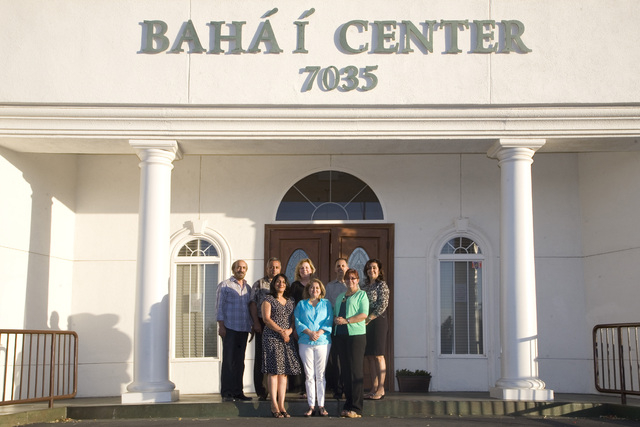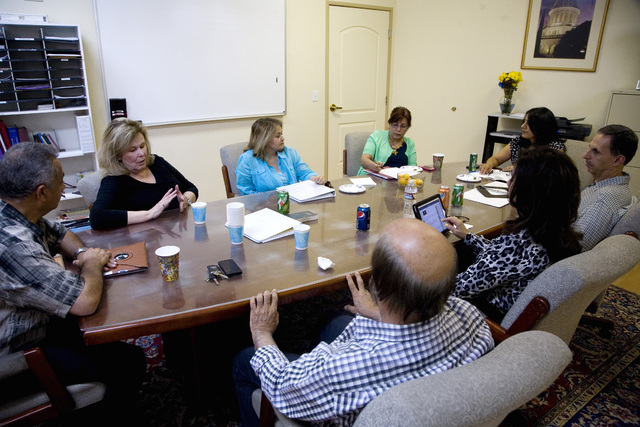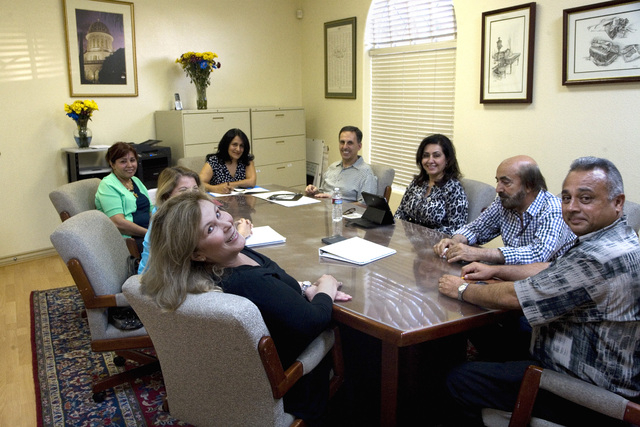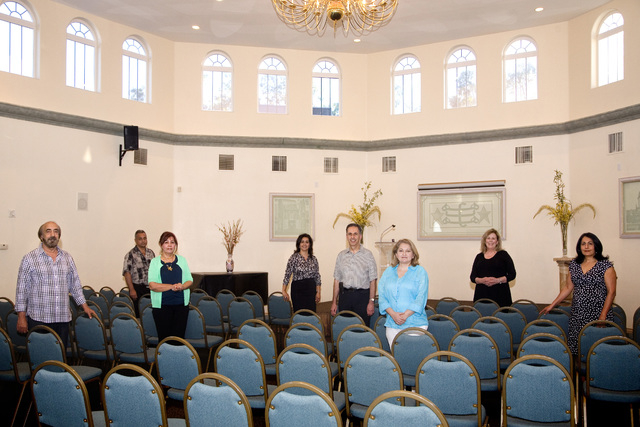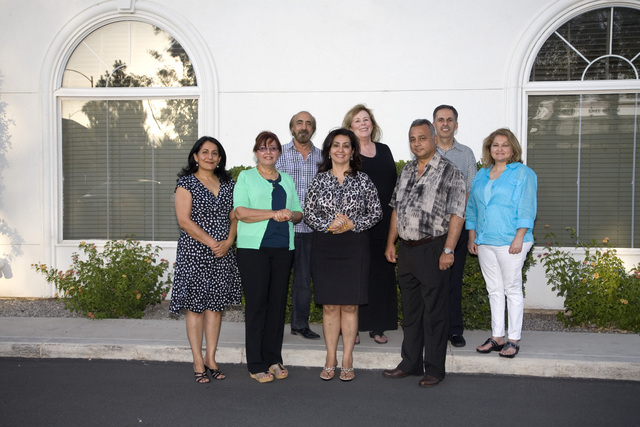Baha’i Faith promotes ‘one planet,’ harmony
Aleda Nelson’s interest in the Baha’i Faith began when she spotted a billboard at the corner of Maryland Parkway and Flamingo Road. “It said, ‘One Planet. One people. Please,’ ” she recalled. “I had to know more.”
Amr Hosny was drawn to the religion as a child growing up in a Muslim family in Egypt. He knew he didn’t like what he saw around him, and his sister, an academic who had studied religions, introduced him to the Baha’i Faith.
On the surface, the experiences half a world apart reflect quite different routes in religious conversions, but they bear one important similarity: Each made an individual decision to become a Baha’i after doing his or her homework.
For a religion that thrives without clergy and prohibits proselytizing, acquiring new members can be tricky. Individuals have to respond to word of mouth — or the random billboard — and convince themselves that the religion is right for them.
Here in Sin City, that can be a tough sell. The Baha’i Faith prohibits alcohol, drugs, premarital sex and, yes, gambling. Daily prayers are mandatory.
But for followers such as Nelson and Hosny, that’s all a small entry price for an optimistic religion that is based on racial and gender equality, peace and harmony, equitable distribution of wealth and a consultive approach to decision-making.
While the phrase “new world order” is included in Baha’i writings, the faith has no political agenda. In fact, Baha’is are prohibited from political action of any kind. They view politics as “disunifying.” Baha’is see the “new world order” as a system of teachings that lead toward a sort of worldwide commonwealth in which Baha’i principles of equity and justice would be universally accepted.
Baha’is believe all religions share a single God and the route to world peace lies in unifying mankind, a process that includes a universal language and monetary system.
In the larger picture, the Baha’i Faith is a young religion. Its roots are in 19th-century Persia — today’s Iran — where in 1863, a man known as Baha’u’llah proclaimed himself the messenger of God for this age. His teachings were at odds with the nation’s powerful clergy, resulting in imprisonment, torture and exile. He died in 1892 near Akka in present-day Israel. A shrine built there is the holiest place for Baha’is, and members of the faith are encouraged to make pilgrimages there.
Unlike other messengers of God, the direct writings of Baha’u’llah and his designated interpreter, his eldest son Abdul’l-Baha, are available to the Baha’i Faith.
According to Baha’i literature: “Baha’u’llah’s teachings are in perfect harmony with the teachings of Christ, but they address the conditions of humanity today.”
As part of its belief in the unity of religion, the faith also treats the Koran, the Bible, the Torah and other religion’s texts as sacred.
The Baha’i written principles are intentionally broad, Hosny explained. And that encourages interpretation in the context of contemporary times. Local differences of interpretations may be appealed, with the Universal House of Justice in Haifa, Israel, holding the final decision.
Today, the Baha’i Faith is among the fastest-growing religions on the planet with more than 7 million followers across every continent. About half of Baha’i followers are in Asia, with U.S. memberships estimated at fewer than 400,000.
The estimated 350,000 Baha’is in Iran continue to be persecuted by the ruling Muslim majority, local Baha’is Mojgan Moazez said. She and her family fled Iran in 1980 after the fall of the shah.
Two core principles would seem to make Baha’is easy targets for oppressive regimes. Baha’is believe it is their obligation to follow the rules of governments, yet a prohibition on political activity rules out efforts to effect change on a larger community level.
Baha’is describe themselves as a grass-roots religion that empowers its members to be agents of change. But their focus is on improving themselves while declining to pass judgment on the actions of others.
Locally, Hosny, a member of the leadership council at the Las Vegas Baha’i Center on Oakey Boulevard, said there are about 1,000 followers across the valley organized in every geographic community.
The nine-sided white center just west of Rainbow Boulevard was built in 1997 after the group outgrew its old meeting center. The unusual architectural design reflects the Baha’i principle of accepting followers from all directions.
Study sessions and devotions are held weekly. Youth programs explore questions of ethics and justice as well as performing community service work.
The Las Vegas Baha’i Center is open weekdays from 10 a.m. to 2 p.m. The group’s website — www.lvbahai.org — contains links to the faith’s principles, organization and history.



